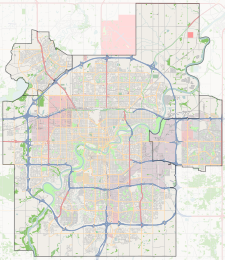
Transgender rights in Canada, including procedures for changing legal gender and protections from discrimination, vary among provinces and territories, due to Canada's nature as a federal state. According to the 2021 Canadian census, 59,460 Canadians identify as transgender. Canada was ranked third in Asher & Lyric's Global Trans Rights Index in 2023.

The Sisters of Charity of Montreal, formerly called The Sisters of Charity of the Hôpital Général of Montreal and more commonly known as the Grey Nuns of Montreal, is a Canadian religious institute of Roman Catholic religious sisters, founded in 1737 by Marguerite d'Youville, a young widow.
Covenant Health Systems is a non-profit Catholic regional health care system sponsoring hospitals, nursing homes, assisted living residences and other health and elder services throughout New England.

Ruttonjee Hospital is a district general hospital in Wan Chai on Hong Kong Island in Hong Kong. It is affiliated with the Li Ka Shing Faculty of Medicine, at the University of Hong Kong, and provides clinical attachment opportunities for the university's medical students.
Capital Health was a public health authority providing complete health services to Edmonton, Alberta's capital city, and its surrounding communities. It was also the largest single employer in the province of Alberta, employing approximately 30,000 people. In 2008, it was merged into Alberta Health Services.

The University of Alberta Hospital (UAH) is a research and teaching hospital in Edmonton, Alberta, Canada. The hospital is affiliated with the University of Alberta and run by Alberta Health Services, the health authority for Alberta. It is one of Canada's leading health sciences centres, providing a comprehensive range of diagnostic and treatment services to inpatients and outpatients. The UAH treats over 700,000 patients annually.
St. Cloud Hospital is a hospital in St. Cloud, Minnesota, United States. It is a Catholic-affiliated, not-for-profit institution and part of CentraCare Health. The hospital has more than 9,000 employees, 400 physicians and 1,200 volunteers. It serves 690,000 people in a 12-county area.

The Royal Alexandra Hospital (RAH) is a large and long serving hospital in the Canadian province of Alberta. Operated by Alberta Health Services and located north of Edmonton's downtown core, the Royal Alexandra serves a diverse community stretching from Downtown Edmonton to western and northern Canada. The total catchment area for the RAH is equivalent to 1/3 of Canada's land mass, stretching north from Downtown Edmonton to enpass both the Northwest Territories and Yukon territory, and stretching as far west as British Columbia's pacific coast.
Alberta Health Services (AHS) is the single health authority for the Canadian province of Alberta and the "largest integrated provincial health care system" in Canada. Headquartered in Edmonton, AHS delivers medical care on behalf of the Government of Alberta's Ministry of Health. It operates 850 facilities throughout the province, including hospitals, clinics, continuing care facilities, mental health facilities and community health sites, that provide a variety of programs and services. AHS is the largest employer in the province of Alberta. In 2019, AHS served 4.3 million Albertans with a staff of 125,000 staff and 10,000 physicians, and an annual budget of $15.365 billion. Sean Chilton is the Acting President and CEO of AHS and reports to Dr. John Cowell, the AHS Official Administrator. The Official Administrator is accountable to the Minister of Health and the Premier.
The Misericordia Community Hospital is an acute care hospital in west Edmonton, Alberta, Canada. The Misericordia is home to the Institute for Reconstructive Sciences in Medicine (iRSM), a facility for reconstruction of the face, head and neck.

Nurses in Canada practise in a wide variety of settings, with various levels of training and experience. They provide evidence-based care and educate their patients about health and disease.

Saint Boniface Hospital is Manitoba's second-largest hospital, located in the St. Boniface neighbourhood of Winnipeg. Founded by the Sisters of Charity of Montreal in 1871, it was the first hospital in Western Canada. The hospital was incorporated in 1960, and as of 2020 has 436 beds and 30 bassinets.
Transgender health care includes the prevention, diagnosis and treatment of physical and mental health conditions for transgender individuals. A major component of transgender health care is gender-affirming care, the medical aspect of gender transition. Questions implicated in transgender health care include gender variance, sex reassignment therapy, health risks, and access to healthcare for trans people in different countries around the world. Gender affirming health care can include psychological, medical, physical, and social behavioral care. The purpose of gender affirming care is to help a transgender individual conform to their desired gender identity.
Marni Marcelle Panas is a Canadian LGBT activist. As a transgender woman, she has campaigned for LGBT causes.
Alexis Marie Rivera was a transgender advocate and the first Case Manager and first Program Director for the Children's Hospital's transgender youth services program in Los Angeles. Rivera helped develop social services for the transgender community in Los Angeles in the 1990s and early 2000s, and later statewide programs in the late 2000s.

Sr. Dr. Maura Lynch was an Irish doctor, a nun, and proponent of women's health.
A gender identity clinic is a type of specialist clinic providing services relating to transgender health care.
Ruth L. Collins-Nakai is a retired Canadian cardiologist, educator, researcher, physician leader, healthcare advisor, and public health advocate.
Lorne BairdWarneke was an Alberta-based psychiatrist and advocate for 2SLGBTQ+ people in Canada. He founded the first Canadian gender identity clinic at Grey Nuns Community Hospital in Edmonton, Alberta.









